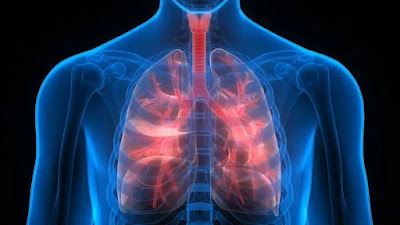Pneumonia is a severe respiratory infection that can cause significant discomfort and pain. One of the common symptoms of pneumonia is rib pain, which can be a sign of complications associated with the condition. This article will discuss the causes, symptoms, and treatment options for pneumonia-related rib pain.
Causes of Pneumonia-Related Rib Pain:
The most common cause of pneumonia-related rib pain is inflammation or irritation of the lining surrounding the lungs, known as the pleura. This condition is called pleurisy or pleuritis. When the pleura becomes inflamed, it can cause sharp, stabbing pain in the chest, particularly when breathing deeply or coughing.
In some cases, pneumonia can also lead to rib fractures. This can occur when the force of coughing or sneezing is too strong for weakened or fragile ribs. Additionally, pneumonia can cause muscle strain in the chest or back, resulting in rib pain.
Symptoms of Pneumonia-Related Rib Pain:
The symptoms of pneumonia-related rib pain can vary depending on the underlying cause Qairuti Ard Karsina. If the pain is due to pleurisy, you may experience sharp, stabbing pain in the chest that worsens with deep breathing, coughing, or sneezing. You may also feel tenderness or discomfort when touching the affected area.
If the pain is due to rib fractures, you may experience a dull ache, tenderness, or swelling around the affected area. You may also notice bruising or redness over the fractured rib.
Occasionally, pneumonia-related rib pain can cause difficulty breathing, fever, chills, fatigue, and a persistent cough.
Treatment Options for Pneumonia-Related Rib Pain:
The treatment options for pneumonia-related rib pain depend on the underlying cause of the pain. In cases of pleurisy, the goal of treatment is to reduce inflammation and manage pain. This can be achieved through over-the-counter pain relievers, such as acetaminophen or ibuprofen, and prescription-strength anti-inflammatory medications, such as corticosteroids.
Applying heat to the affected area can also help reduce pain and inflammation. You can use a heating pad, warm compress, bath, or shower to soothe the affected area.
In rib fractures, treatment may involve immobilizing the affected area to allow the bone to heal correctly. This can be achieved using a rib belt or brace, which will limit the movement of the chest during breathing. In some cases, surgery may be necessary to repair severe fractures.
Physical therapy may also be recommended to help strengthen the chest and back muscles and improve overall mobility and range of motion.
Prevention of Pneumonia-Related Rib Pain:
The best way to prevent pneumonia-related rib pain is to prevent pneumonia itself. The most effective way to do this is through vaccination. The pneumococcal vaccine, which protects against several strains of the bacteria that can cause pneumonia, is recommended for all adults over 65 and anyone with certain underlying medical conditions.
Additionally, maintaining good hygiene, such as washing your hands frequently and avoiding close contact with people who are sick, can help reduce your risk of contracting pneumonia Herbal Medicine.
If you are experiencing symptoms of pneumonia, such as fever, cough, chest pain, or difficulty breathing, it is essential to seek medical attention immediately. Early diagnosis and treatment can help prevent complications, including rib pain.
When to Seek Medical Attention:
If you are experiencing rib pain along with other symptoms of pneumonia, such as fever, cough, chest pain, or difficulty breathing, it is essential to seek medical attention immediately. Additionally, if your rib pain is severe or persistent, consult your healthcare provider to determine the underlying cause and appropriate treatment options.
In some cases, pneumonia-related rib pain can be a sign of a more severe complication, such as a collapsed lung or an infection in the heart's lining. Prompt medical attention is critical to prevent further complications and ensure proper treatment.
Conclusion:
Pneumonia-related rib pain can be a painful and uncomfortable symptom of this severe respiratory infection. Understanding this condition's causes, symptoms, and treatment options can help you manage your pain and prevent complications. If you are experiencing rib pain and other signs of pneumonia, it is essential to seek medical attention immediately. With early diagnosis and treatment, you can recover from pneumonia and return to normal activities as soon as possible.


Comments
Post a Comment